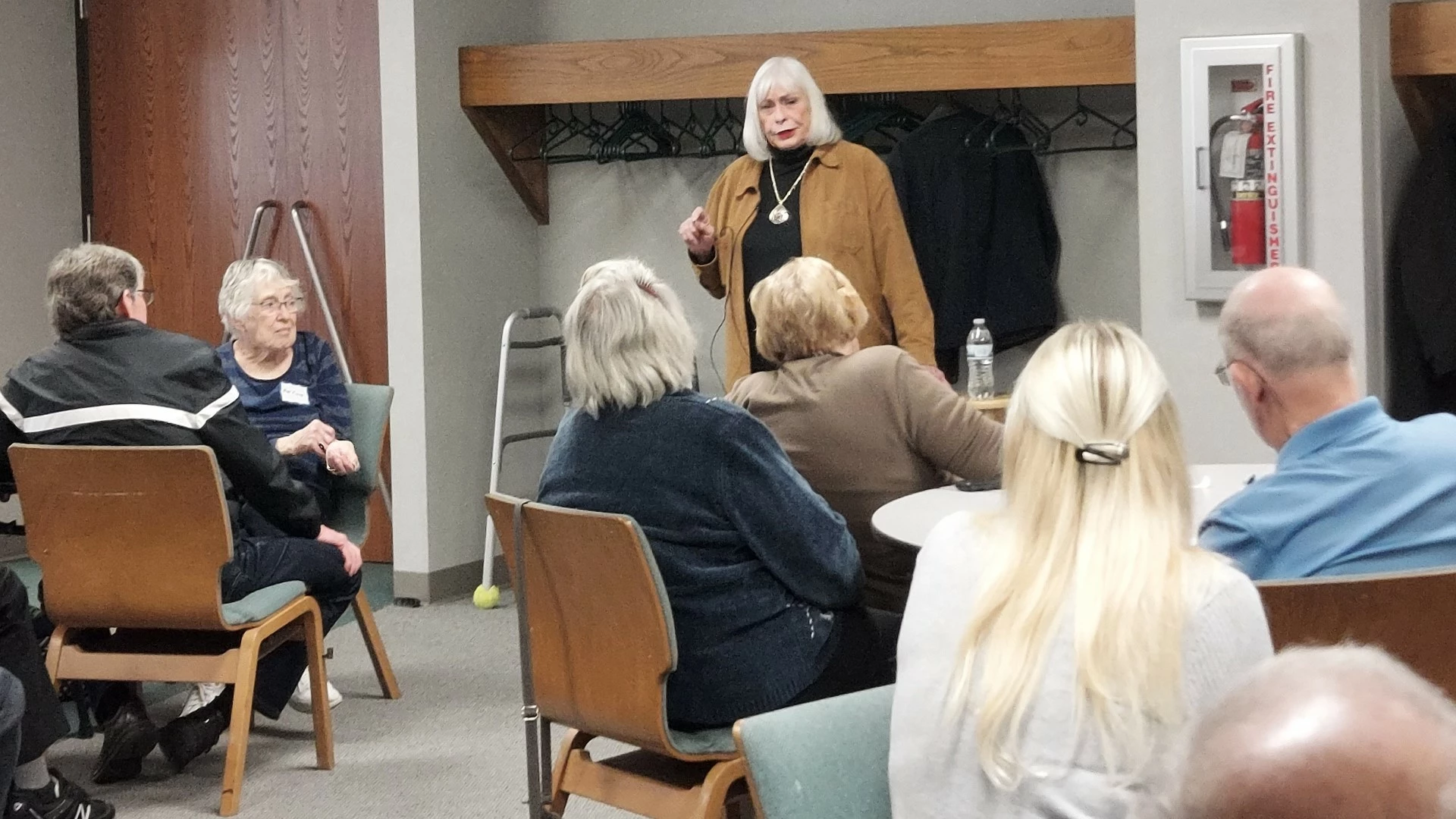An overflow crowd of Lunch and Learners showed up in January to hear Barb Miller, the Education and Outreach Associate of the Indiana Association of Area Agencies on Aging. The Association oversees 15 area agencies including CICOA.
 Barb’s mission is to educate people about Medicare and consumer fraud and abuse. She worked for Blue Cross/Blue Shield for 30 years. Medicare fraud is a $90 billion a year problem that consumes 10% of Medicare’s budget. Fraud is basically billing for a service that is not provided. Abuse is billing for more service than actually provided.
Barb’s mission is to educate people about Medicare and consumer fraud and abuse. She worked for Blue Cross/Blue Shield for 30 years. Medicare fraud is a $90 billion a year problem that consumes 10% of Medicare’s budget. Fraud is basically billing for a service that is not provided. Abuse is billing for more service than actually provided.
People need to be concerned since this is their money and if Medicare has to reduce the payout to someone’s doctor to cover the losses, the doctor may decide to opt out and not accept Medicare patients any longer.
Genetic testing scams are often seen at health fairs. “Medical appearing” personnel will do a cheek swab of a person and promise a written report. The report never is delivered but Medicare is billed thousands of dollars. Criminal organizations are suspected to be involved due to the large amounts of money involved.
Barb emphasized Medicare will not initiate sending new cards or contact individuals. Be vigilant in protecting your card number and only pass information in face-to-face contact if at all possible.
She said it’s important to review the Medicare Summary Notice document that arrives in the mail. Look for any entries of care that you don’t recognize. Check your name, card number, and dates of service. Question unrecognized entries with your doctor or directly with Medicare.
Consumer scams are wide ranging:
- Grandchildren in jail or hospital and needing cash or gift cards to get home.
- Your credit card is compromised; give your number to caller to confirm.
- Your utilities will be shut off without immediate payment.
- Your computer is running slow, and caller needs access to fix it.
- Romance scams prey on lonely seniors or those having recent death in family.
Barb cautioned answering any phone call if you are not familiar with caller ID. Computer call systems are looking for active telephone numbers that can be sold for marketing purposes. If you do answer an unknown caller and they ask, “Can you hear me?” do not answer “yes,” as they can record that and later claim you agreed to purchase whatever they are selling. A Google search of “scams” on a computer will list many methods being used.
She strongly recommended putting a security freeze on your credit reports. The three companies that do this are: Equifax, Experian, and TransUnion. Click here to view the handout from this presentation.
Submitted by "Herb McCandless" (AKA ???)



